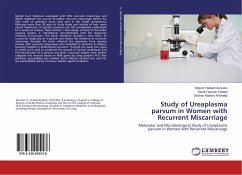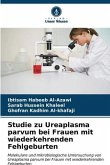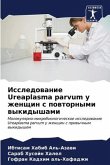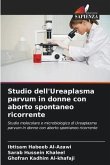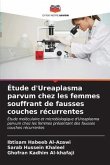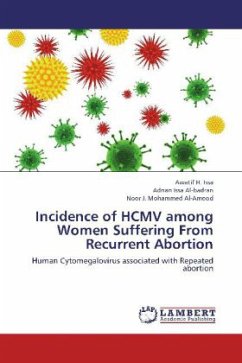Genital tract infections associated with 50% recurrent miscarriage and (WHO) explained the around 56 million recurrent miscarriage before the 24th week of gestation occur each year in the world unexplained. Although more than 30 years of study inside and outside of Iraq, many clinical importance of genital U.parvum are still incompletely understood for a variety of reasons. These include 1: Poor design of many of the earlier research studies. 2: Unfamiliarity microbiologists with the diagnostic methods of U.parvum. This book, therefore, provides a new metric of success for diagnostic of U.parvum and reduce the incidence of recurrent miscarriage through the book collected the specimens from married woman with recurrent miscarriage who admitted to Feminine & children teaching hospital in Al-Muthanna province. Through the study two types of media were used to accelerate the growth of genital Ureaplasma and PCR identification of U.parvum was done. U.parvum isolates were further subtyped into serovars based on MBA genes by using Gradient PCR. Also antibiotic susceptibility was studied, broth dilution method was used for the susceptibility testing of serovar isolates against antibiotic.
Bitte wählen Sie Ihr Anliegen aus.
Rechnungen
Retourenschein anfordern
Bestellstatus
Storno

